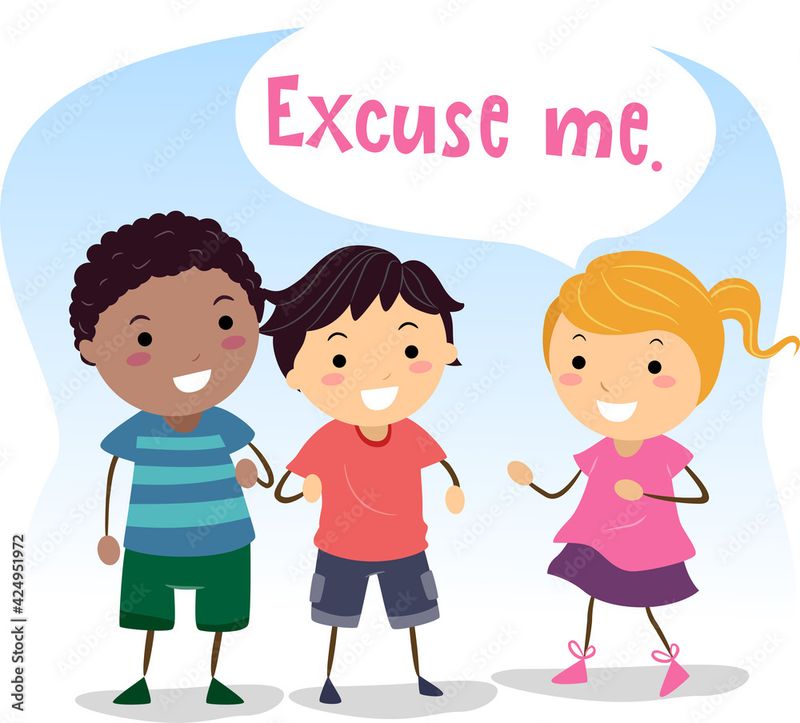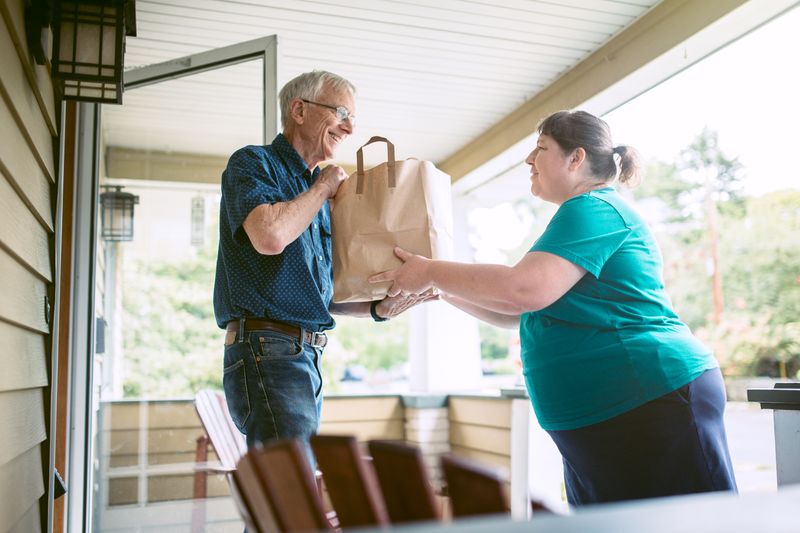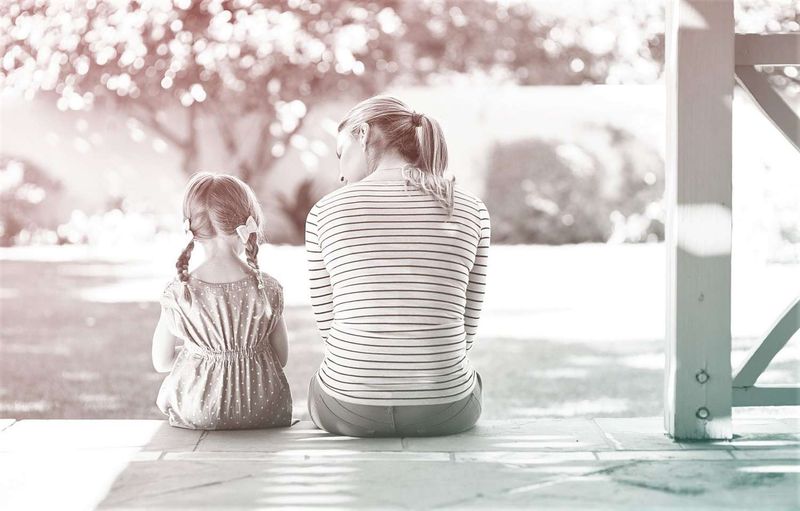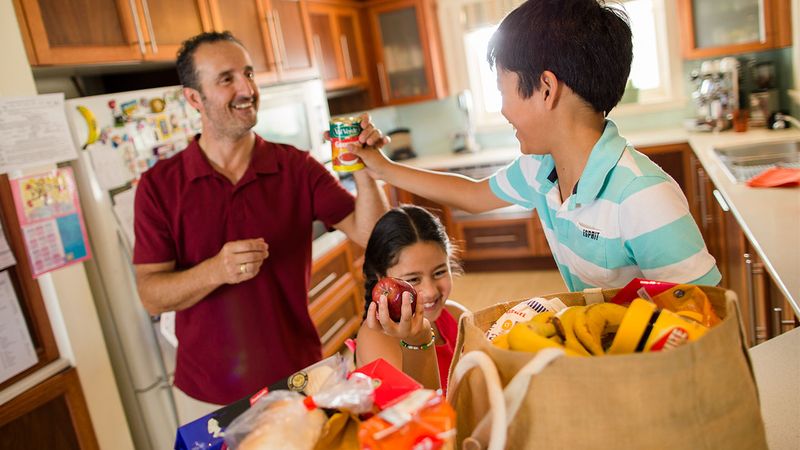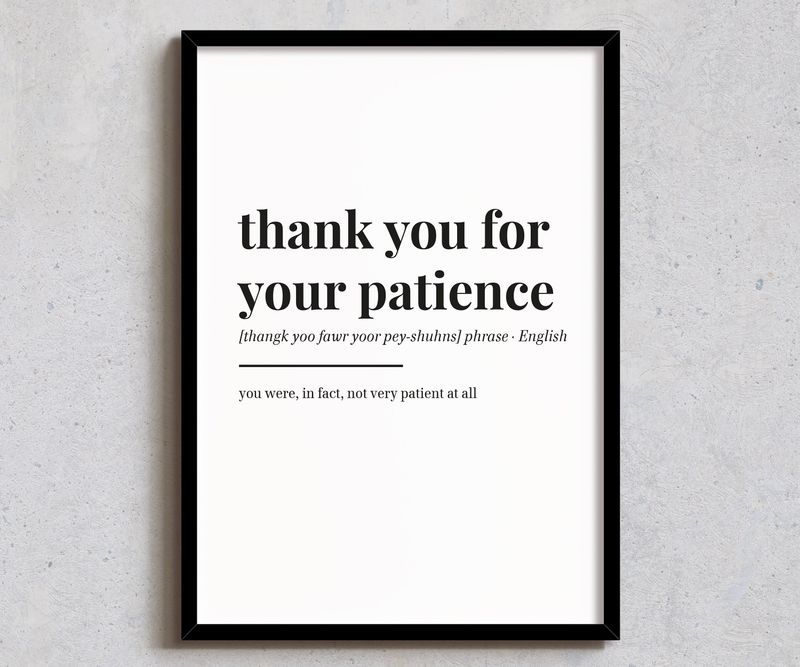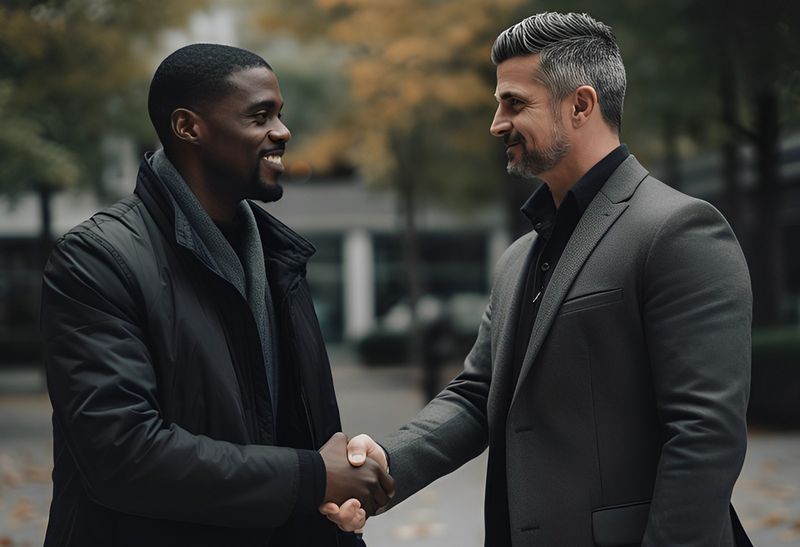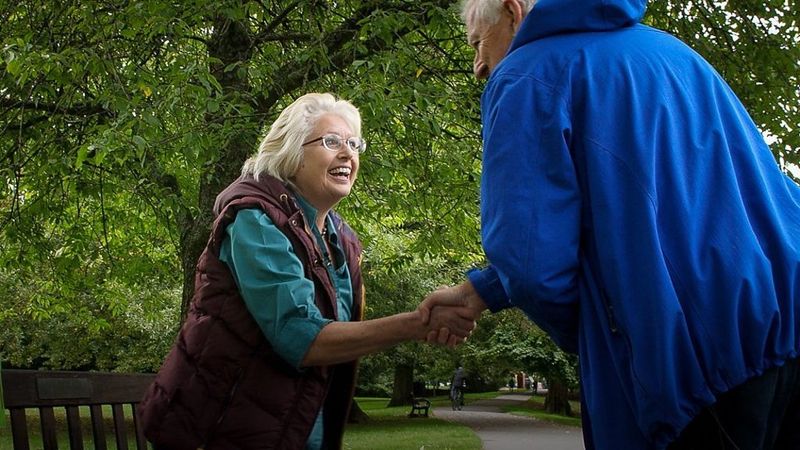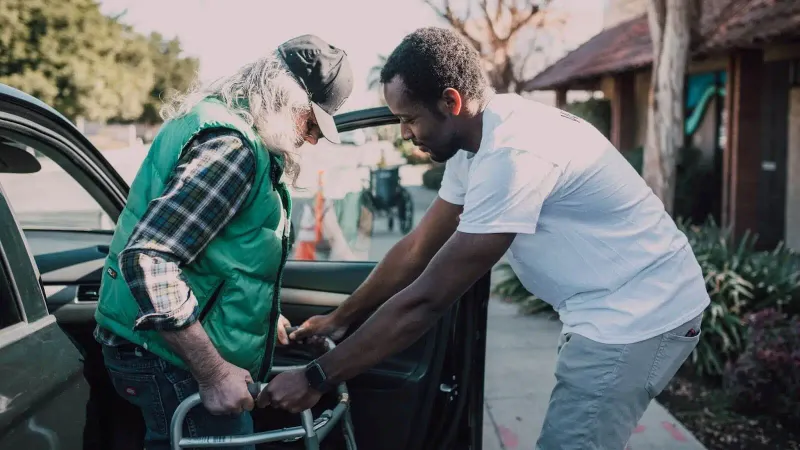Skip the clichés: Some people just sound different. Their words have this weight, like they were handed down—generation to generation—meant to keep you steady when everything else feels up for grabs. Maybe you spot it at a family dinner, or when someone holds the door a beat longer, or when patience colors their voice in a way you almost forgot people could do.
These phrases aren’t vintage for the sake of nostalgia—they’re the fingerprints of a childhood shaped by rules that still matter, even if nobody wants to say them out loud. If you’ve ever wondered what separates someone who was raised with old-school values from the rest, this is it.
Here are nineteen phrases that slip out almost by muscle memory—and tell you more about a person than any resume ever could.
1. Por favor y gracias
There’s something quietly commanding about a person who never forgets to say “please” or “thank you.” It’s not about the words—it’s about the pause, the acknowledgment that someone else just did something for you, however small.
When I was a kid, my mom wouldn’t hand me my juice unless I said both words, every time. It drove me nuts, but now? It’s second nature. You can spot people with this habit from miles away—they don’t even think about it, but everyone around them feels a little more noticed.
It’s not performative kindness. It’s the habit that says, “I know you didn’t have to help me, but you did, and I see that.” I don’t care how old you are—those words never go out of style. They’re the soft armor we wear so the world feels less sharp.
2. Excuse Me
Have you ever heard someone slice through chaos with a simple, genuine “excuse me”? It’s not loud, not desperate. Just a clear, direct signal: I see you, and I care if I’m in your way.
Sometimes, in packed places—grocery aisles, subway doors—it’s the difference between feeling like cattle and feeling like community.
“Excuse me” isn’t just about manners. It’s an olive branch. It turns a potential collision into a moment of shared understanding. In a world that rushes, this tiny phrase still manages to slow things down, just enough for two people to be human to each other.
3. I Appreciate You
Nobody’s day ever got worse because someone said, “I appreciate you.” Not just “thanks.” Not just “good job.” There’s an intimacy in it, almost like you’re letting the other person know their effort left a mark.
A boss of mine used it during a really long week. It stopped me in my tracks, made me feel seen—like I wasn’t just a cog in the machine, but someone with value.
This phrase is an old-school treasure. It’s a little vulnerable, a little brave. It says, “I know this took energy, and I don’t take it for granted.” You hear it from people raised to notice the extra mile. Funny how three simple words can make a day lighter.
4. How Can I Help?
This isn’t just about lending a hand. It’s a mindset, a reflex. You see it in people who don’t wait to be asked—they step in, often before you realize you need them.
My dad’s voice echoes in my head every holiday, scanning the room for someone to assist. He never sat still when someone struggled, and now, neither can I. It’s not showy, just quietly reliable.
This phrase is old-school because it assumes responsibility is shared. It’s the antidote to all the “not my problem” shrugs out there. If you hear it, you’re standing in the company of someone who learned that every mess is a little bit everyone’s.
5. It’s a Pleasure to Meet You
Some people shake your hand like they mean it, look you in the eye, and say, “It’s a pleasure to meet you.” No scripts, no rush—just solid, old-fashioned sincerity.
Think back: Maybe your aunt used to say it at every introduction. It turned strangers into guests, and guests into friends. Notice how, when you use it now, people pause—almost surprised anyone still bothers.
These words open doors. They create a small, golden moment of respect, even if you never see that person again. If you grew up around this phrase, you know: It’s not just about being polite—it’s about honoring the meeting itself.
6. I Trust Your Judgment
Hearing “I trust your judgment” from someone you respect hits different. It’s not just approval—it’s a handoff of responsibility, a sign they believe you can handle what’s next.
My mom would say this when I second-guessed myself. She didn’t step in, didn’t correct—just offered faith. That trust built more confidence than any lecture ever could.
Old-school values aren’t just about rules. Sometimes, they’re about letting go and backing someone’s choices—mistakes and all. When you hear this phrase, you’re hearing the echo of someone who was taught to respect others’ autonomy.
7. Lo siento
A real apology doesn’t come easy. But “I’m sorry,” when it’s genuine, is almost a magic spell—it breaks tension, invites forgiveness, and makes space for healing.
People raised old-school learned that pride is never more important than respect. I remember being told to apologize, even if it felt embarrassing, because relationships mattered more.
Sometimes, those two words are all it takes. No excuses, no blame-shifting. Owning up is an art form, and this phrase is its cornerstone. You know someone values integrity when they can admit they’re wrong without flinching.
8. Please Pass the Salt
At my grandma’s house, nobody grabbed for anything at the table. You asked, always with “please.” “Please pass the salt” became a family ritual, a way of remembering you’re not alone at the table.
It sounds so simple, but that tiny phrase is loaded with respect. It teaches patience—wait your turn, include others, acknowledge their space and effort.
People raised like this take the same approach everywhere—boardrooms, friendships, even traffic. It’s not about the salt. It’s about remembering that every meal is a chance to practice kindness, one small request at a time.
9. ¿Puedo?
“May I?”—two words that never get old, no matter how casual the world gets. It’s the opposite of entitlement. It’s the reflex to check if your presence or action is welcome.
My best friend’s mom was big on this. You didn’t just walk in, or take what you wanted. You earned your space with respect, and people noticed.
It’s a phrase that marks a person who knows boundaries matter. It’s small, but it goes a long way in making others feel considered. If you hear it, you’re in the company of someone who learned early: permission is never assumed.
10. Thank You for Your Patience
Ever had your fuse run short while waiting? Then someone says, “Thank you for your patience”—and just like that, your guard drops.
This isn’t about stalling—it’s about giving dignity to the wait. A small acknowledgment that your time has value, and that someone sees the effort it takes to hang in there.
People who use this phrase know frustration cuts deep. They don’t rush to fix it, but they don’t ignore it either. Those words can turn a long line into a moment of shared humanity, and that’s a skill worth holding onto.
11. After You
Ever been at a door and someone says, “After you”? It’s not grand, but it lands like a tiny compliment—a reminder that you’re seen, not just in the way.
You see someone who uses this phrase move through life like everyone else matters just as much as they do. That phrase isn’t for show—it’s baked into their bones.
“After you” is more than just a sign of manners. It’s the quiet belief that you never lose by letting someone else go first. In a world rushing for first place, this gesture is a breath of fresh air.
12. Let Me Get That for You
There’s a certain choreography to kindness, and this is one of its classic moves. It’s the reflex to jump in—no fuss, just help.
Some people have a knack for this. They spot dropped keys or spilled coffee from a mile away, and before you can even react, they’re there—smoothing things over.
It’s not about showing off. It’s about being tuned in to other people’s needs, even when they don’t ask. That’s old-school: the belief that showing up for someone else is worth a few extra seconds of your day.
13. Yes, Ma’am / Yes, Sir
Hearing a “Yes, Ma’am” or “Yes, Sir” feels almost startling these days. But to some of us, it’s muscle memory. A way to show respect, not just to elders but to anyone in a position you acknowledge.
Growing up, if I skipped it, I’d get a look from my dad that said more than words ever could. It wasn’t about fear—it was about pride in how we treated others.
These phrases don’t mean you’re submissive. They mean you know how to honor someone else’s role, however brief. That’s something the world could use a little more of.
14. My Word Is My Bond
Some people don’t need contracts. When they say “My word is my bond,” you can take that to the bank. There’s a weight behind the promise—almost like they’d rather break a bone than break their word.
My neighbor growing up was famous for this. He’d show up, rain or shine, exactly when he said. Once, he fixed our fence just because he said he would.
Trust isn’t built overnight. It’s carved out of a thousand tiny decisions, and this phrase is the chisel. People who live by it are rare, but unforgettable.
15. Mind If I Join You?
Joining a group or conversation used to start with, “Mind if I join you?” It’s old-school and a little vulnerable—like admitting you’re hoping for a seat at the table, not just taking one.
I remember being terrified to approach new circles in school. But my mom would nudge me: “Just ask. It shows respect.” Turns out, people respond to that humility.
Now, when I hear it, I know I’m dealing with someone who values inclusion without assumption. That’s a rare kind of social courage. And it’s much more powerful than barging in unannounced.
16. If You Don’t Have Anything Nice to Say, Don’t Say Anything at All
Some lessons stick for life. This¸1 is one of them. It’s the line that floated above every childhood scuffle in my house.
My grandma wielded it like a shield, not just to keep the peace, but to remind us that words carry weight. Hurtful comments weren’t just frowned upon—they were off-limits.
It’s not about being fake or avoiding honesty. It’s about choosing words that heal more than they harm. People raised with this value know silence can be the kindest thing you say all day.
17. I Was Raised to…
Do you notice how some people preface their actions with, “I was raised to…”? It’s both an explanation and a quiet claim to a set of standards that run deeper than trends.
Whenever I hear it, I know I’m about to witness something thoughtful—a door held open, a meal shared, an apology offered even when it’s awkward. It’s a signpost for values that didn’t just appear overnight.
These folks aren’t bragging. They’re connecting the dots between past and present, showing you exactly where they come from. In a world obsessed with reinvention, that kind of rootedness is refreshing.
18. Respect Your Elders
“Respect your elders” might sound old-fashioned, but it’s more than a catchphrase. It’s a worldview that says wisdom has weight, and age should be honored, not ignored.
I grew up in a family where you stood up when someone older entered the room. It wasn’t about hierarchy—it was about gratitude for the people who paved the way.
When you see someone living this out—giving up their seat, listening without distraction—you know you’ve found someone grounded in traditions that put people first. That’s worth holding on to.
19. Let’s Agree to Disagree
This is a phrase for grown-ups. It’s what you say when you care more about the relationship than winning the argument.
People use it to end heated debate. Nobody storms off, nobody holds grudges. It is a line in the sand that says, “We can stop fighting and still care about each other.”
Peace is sometimes more important than being right. It’s a soft landing in a world built on hard lines. And it’s as old-school as it gets.



